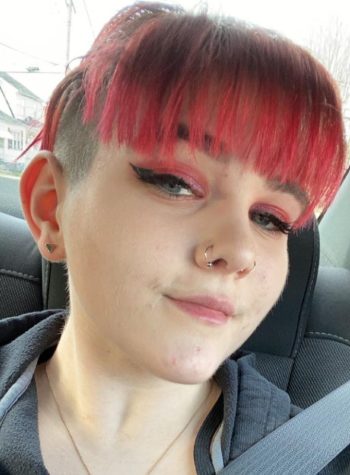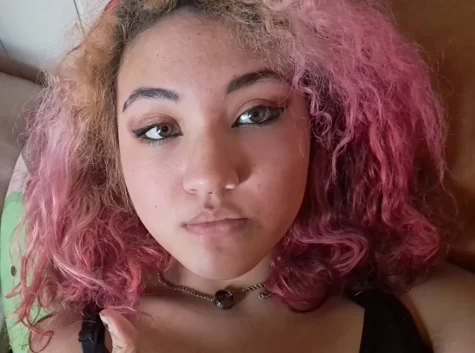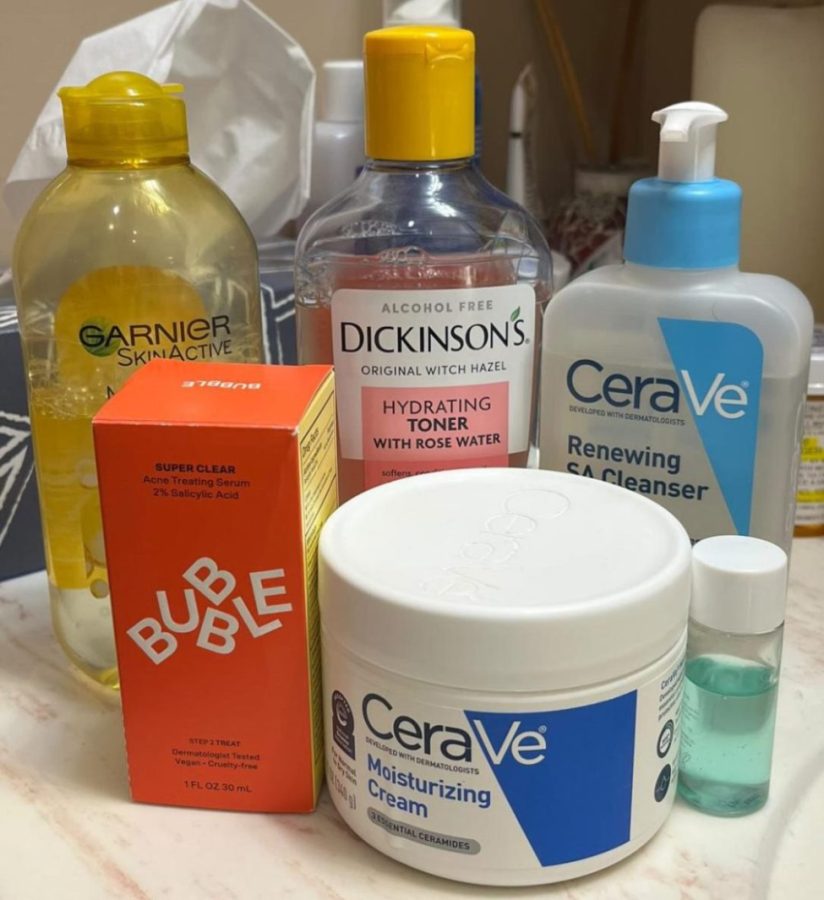Raging Acne Stigma
Normalizing skin imperfections
May 4, 2023
The majority of teenagers fear the day puberty hits, their bodies suddenly change, and acne invades. The stigma of acne can make those struggling with it feel insecure and embarrassed. Changing the stigma against acne can help others realize their acne is normal and is something they shouldn’t cause them shame.
LHS junior Olivia Shafer said an acne breakout affects them in a very negative way.

“Acne affects me mentally because whenever I have it I feel gross and I just wanna hide away in my room,” they said.
Getting rid of acne is big business. “The U.S. acne treatment market is projected to grow from $4.50 billion in 2022 to $6.12 billion by 2029, at a CAGR of 4.5% in forecast period, 2022-2029” (“U.S. Acne Treatment Market Size”). Acne is commonly misunderstood and teens often blame themselves for the condition of their skin.
According to the American Academy of Dermatology, recent research studies indicate that people with acne feel that their skin makes them feel unattractive, embarrassed, or self-conscious and that having acne can negatively affect them mentally and psychologically (“Acne Can Affect More than Your Skin”).
Moreover, those who suffer from severe cases of acne can experience increased anxiety, depression, low self-esteem, and poor self-image. Although it is common for most teenagers to get acne, some experience it worse than others.
“Since I was in elementary I always had a bunch of acne and got made fun of because I got it earlier than others at my school,” stated Shafer.
An acne breakout can be irritating and an annoyance for some.
LHS senior Isaiah Carr, explains how acne makes him feel.

“It just makes me feel uncomfortable in some sort of way so sometimes I will end up picking those pimples if they get too much for me,” said Carr.
Society has created a negative stigma around acne and those with it. LHS junior Rosalia Villa-Barbour believes that the media contributes to the stigma of acne.
“I think that from models or pictures, the ideal look is clear skin, no bumps or dips or anything like that,” stated Villa-Barbour.
“I personally do think society has an effect on people with acne because if someone has a lot they get judged or looked at, and if you don’t have any you get praised for it,” Shafer stated.
Carr added advice for those struggling with acne.

“You should still love yourself for what you have and stop comparing yourself to what others have because everybody has insecurities and or something to work on,” said Carr.
Villa-Barbour shared some advice and words for those struggling with acne.
“Acne shouldn’t affect how you see people because everyone is special in their own way. People who truly care about you don’t care how you look and you shouldn’t let other people tell you what to do with your own body,” she said.


